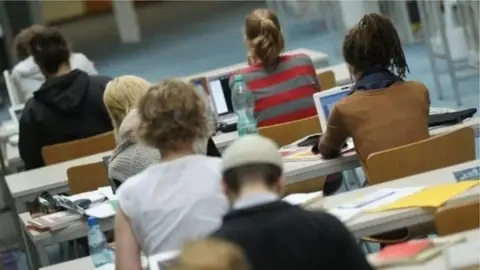Other News
Family syndicate who scooped huge €1m jackpot almost didn’t buy ticket

Read more on post.
A family syndicate who scooped a lifechanging €1m in the Daily Millions almost didn’t purchase a ticket for the draw.
The syndicate scooped the Daily Million top prize on September 9th after purchasing their winning ticket for the 9pm draw at Earls on Abbey Street in Wicklow. The syndicate manager admitted that the unpredictable Irish weather made them come close to not buying a ticket for the draw at all.
“For a change, I can a say that the lashing rain worked in my favour,” they said. “I had no plans to go to the shop at all, instead I was going to hang a shelf in our shed – a job I had been putting off, the weather wasn’t making it easy. I took that as a sign to head to the shop, so I picked up a few bits and got my ticket.
They added: “I can safely say that I am never checking my ticket at night time again! I checked the ticket just as I got into bed and when I saw I won the top prize, do you think there was a chance of me sleeping that night? I ended up getting out of the bed to make a cup of tea and calm myself before telling the family what we won. I’ll be checking my tickets in the morning now in future, that’s for sure! I have kept the ticket close ever since the win. It’s been safely tucked away in my wallet where I can check every so often that it’s still there.”
One Dublin man claimed a €50,000 prize with a Mega Money Multiplier scratch card. He picked up the winning ticket at Mace Service Station in Castlebar, Mayo, while travelling for work.
“When I saw the €50,000 prize, my first thought was ‘Holidays again?’” he said. “It made the three-hour drive home feel like a breeze knowing I had a fortune in my pocket!”
With plans to tick off another destination from his travel list and possibly upgrade his car, he’s ready to enjoy the rewards of his win.
Also claiming a top prize in the Bingo Multiplier game was a player from Co. Meath who won €50,000. The winning scratch card was purchased at Nearby, Unit 7, Johnstown Shopping Centre, Navan, Co. Meath.
“I was scratching the card at the kitchen table when I realised, I’d won! I was just so excited, I ran upstairs and pulled my partner out of bed to get them to double, and triple check the card, as I was doubting myself.”
When asked how he planned to spend his prize, he replied “I’ve no immediate plans with the win, but I’ll continue playing!”
A Dublin woman was all smiles in the Winners Room after her €15 All Cash Gift scratch card revealed a €15,000 prize. Her ticket was purchased at Nearby Clonee Mart, Riverdale House, Main Street, Clonee, Co. Meath, and it all started with a sparkly card that caught her eye.
“My partner always lets me choose between two cards, I went with the sparkly one!” she said. “I couldn’t believe it when I saw €15,000. I couldn’t even read all the digits, at first, I thought it was €1,500, then I realised there was another zero!”
To keep the ticket safe, she tucked it away among old children’s paintings, a clever hiding spot until she could bring it to HQ. “We were a bit paranoid about keeping it safe, but I knew no one would think to look there!” she laughed. She’s now planning a luxurious spa hotel getaway with her partner to celebrate.
Join our Dublin Live breaking news service on WhatsApp. Click this link to receive your daily dose of Dublin Live content. We also treat our community members to special offers, promotions, and adverts from us and our partners. If you don’t like our community, you can check out any time you like. If you’re curious, you can read our Privacy Notice.
For all the latest news from Dublin and surrounding areas visit our homepage.
Breaking News
Most Scottish colleges not sustainable, says report

Read more on post.
Douglas FraserScotland business/economy editor
 Getty Images
Getty ImagesMost Scottish colleges face unsustainable losses over the next three years – and several are warning they could run out of cash by the end of this financial year, according to a new report.
The Scottish Funding Council (SFC) study, which has had access to accounts and forecasts, shows a further education sector in crisis, with 22 out of 24 colleges expected to spend more than their income this year.
“These deficits show that most colleges are not sustainable,” it says.
Meanwhile, a separate report into Scotland’s universities says they have become over-reliant on income from foreign students and they are at risk if numbers drop.
The SFC monitors and assesses the financial health of Scotland’s further education colleges and universities.
It also distributes funds for Scottish students on behalf of the Scottish government.
Colleges remain highly dependent on the SFC grant, which accounts for more than three-quarters (77%) of their income.
This contrasts with the university sector, which was only reliant on SFC grants for 24% of its income last year, and that number is reducing.
The report says the grant from the funding council has remained relatively flat whereas other costs have soared, such as annual pay awards for staff and rising employer National Insurance contributions and pensions.
Staff costs represent the largest expense for colleges at just under 70% of total costs so this the area they focus on as they urgently try to balance their budgets.
The SFC says further cuts will have a profound impact on the college curriculum, the quality of courses, staff numbers, student numbers, morale and local communities.
An increasing number of colleges have reported that continued savings of that scale will not be achievable, it says.
Most colleges spending more than they earn
According to the funding council report, 17 of Scotland’s 24 FE colleges were in deficit last year, meaning they spend more than they earn.
The forecast for this financial year expects that number to increase to 22.
Twenty of the colleges are still expected to be in deficit in three years’ time.
Another important indicator of a college’s short-term viability is the amount of cash they have in their accounts.
Last year and the year before, the sector as a whole had a cash surplus of £130m.
That is forecast to fall to £35m at the end of this year, and then to go negative by £46m by 2028.
The report says “this reflects colleges’ weak operating position, and there is an imminent risk of several colleges becoming insolvent” by the end of this financial year.
Four colleges expect to have negative cash balances by next April, rising to 12 of them by April 2027.
 Getty Images
Getty ImagesThe report offers limited information about the colleges facing the most financial difficulties.
It reports on published accounts up to 2023-24, which indicate that several of the biggest operating deficits, adjusted for exceptional costs, were in colleges that form the University of the Highlands and Islands.
Perth had an operating deficit of £1.8m, Shetland College was at £1.5m and Moray College was above £1m, with Orkney not far behind.
The Scottish Funding Council says colleges are responding to the pressures with restructuring plans, but have to find money for voluntary redundancies from their own, limited resources.
It says they are cutting teaching time and increasing class sizes, as well as cutting courses with low demand and trying to win more training income from employers.
It says that, on current forecasts, 667 full-time jobs, or their part-time equivalent, will have been cut over four years from 2024, which is one in 15 college staff.
What do Scotland’s colleges say?
Gavin Donoghue, the chief executive of Colleges Scotland, said they had been warning about the chronic underfunding of colleges for years but this report made especially grim reading.
“Colleges have already had investment in them reduced by 17% in real terms since 21/22,” he said.
“They’ve taken difficult and often unpalatable decisions to reduce their staff headcount and reduce the amount of students that they teach and are now looking at decisions like closure of campuses and courses.
“There is no single silver bullet that an individual college can take, its clearly a systemic problem that requires sustainable Scottish government funding.”
Universities ‘over-reliant on foreign students’
Meanwhile, a separate SFC report on Scottish universities said they were over-reliant on foreign students as a source of income.
It said universities get more money from teaching overseas students than they do in funding for Scottish students but there is an increasing risk that they may not be able to maintain the numbers who come from abroad.
The report says competition from other countries, UK visa and immigration policy and geopolitical changes could easily impact their ability to attract foreign students.
The SFC report on universities also says:
- Eleven of Scotland’s 18 universities are expecting to spend more more than they earn this year
- This is expected to lead to a total deficit of £12.9m this year
- The deficit is mainly due to low growth in tuition fees, reduced other income and increased staff costs due to pay inflation.
- The forecast for 2026 shows universities returning to surplus and just seven running a deficit
- However, improvement is mainly driven by three universities, and due to more optimistic forecasts for tuition fees and research income – offset by smaller increases in staff costs
The SFC report says international tuition fee income is now essential for universities to remain financially sustainable and it supports other areas such as research which is often loss-making.
However, the report warns that foreign income is an area of significant fluctuation and risk, especially when it is heavily weighted to a single country.
China remains the country with the most foreign students in Scotland, followed by India, the United States, Nigeria and Pakistan.
Nigeria saw a massive rise in student numbers post-Covid but has since dropped back.
 Getty Images
Getty ImagesEarlier this year, a report into the financial crisis at Dundee University said it had continued with increased spending despite a large drop in foreign student fee income.
The university needed a £40m government bailout after it almost collapsed financially.
The SFC report excluded Dundee because it has not yet finalised its accounts.
It is an extreme example but other Scottish universities are also under financial strain.
Edinburgh University’s principal has called for a “radical re-wiring” to respond to the funding challenge.
On Thursday, Glasgow University principal Anton Muscatelli called for a review of the funding and warned against “stumbling from year to year”.
His statement came as analysis seen by the BBC suggested Scottish government finance for universities and further education colleges has been squeezed in real terms in the past six years by about a fifth, due to the effect of inflation.
The study by David Bell, a professor of economics at Stirling University and expert in public finance, also used publicly available data to show that the fees universities receive for Scottish students fall far short of what they estimate are the costs of educating them.
For instance, in modern languages, the £7,421 annual funding per student is half of what they say is required.
In dentistry, the Scottish government last year paid £19,580 per student.
This is reckoned to be at least £9,000 short of the cost to universities.
Claire McPherson, the director of Universities Scotland, which represents Scotland’s higher education institutions, said the report sets out the “starkest set of financial figures we have ever seen for Scotland’s universities”.
Ms McPherson’s said the report sounds “loud and clear” the financial warnings but there were important things that it does not say.
“It doesn’t mention job losses, which is the painful reality in many institutions,” she said.
“It also doesn’t reference a decade-long decline in public funding as the major contributing factor to the level of financial exposure institutions face and the hard choices they are forced to take.”
She said it was absolutely vital that Scotland makes a move to put its universities on a sustainable financial footing for the long-term.
Other News
Denmark’s Aalborg airport closes again over suspected drone ‘hybrid attack’
Read more on post.
nw|AWZge95UYUaU6sT&?|)27#ām/Jc[ܼ0_i4G’cHAJ'”jX*?E1(4n.36l7,/3p>>:QI7)m~Σ.H%J&cI$dR60wґLLO)xh’rm’oZ[&&ޚsdDPD%y”Iyqؠòb7)
?
U7|(jChHLhD1鹎l;7؇K0xaQkG4G1@;*oLSdh.>1×2]pAihRtF̼KZFg42{(A
-zN1adaϬA
LYf!߳R$5’EoΤa1̙#UEm0iՔM@ٜ&.4(ZyDٷ^ueg&�Z
]Zi儁!hX!B2(gR,F&-G7
IVaUWzWEnsjw{
n42]Sm[2j_}yn@/I’ j~Qlvx�xl&zǼ{|’ml]}(!9Hc!lEE#.a}Z=&ؼzׂt, jӱ۠+ypYkMi s}nkiaDnnr”Ivt)ܜ(@+�V]uqS6=
حK|i~)yI#,$/-~
W};Z]2VM_e-zBc9$4?[>¢V]:y#a#yYnf
9cCoCl^r
1kITKߓ]&xxPIj &m7[`f1A=K@’2 h0~)TLhW&Ć@BUO
6LfrE�(
u0p+YW29dt|R-w`0sf(FB}mSuH
T@vGBľ xMF%nT@#ehN%Ig?^RkS8 !9!THe^4kV8xtRdC
,a?
Xn[nK�^Kr$x
u@Ća0u*TB`ܶ(zu3%n 9@@l2AXB(8MrcdJ:P2�#Aw!#-ܶ�#ᬏel{QTkutZ7E:@-aB|� @Jޤa !Fǂp
h-*5!y*!:_B4cʒҺ20!㐥
oMP
L I앜Զ0:Iy>m#BIF;BbGcY’?,
Oi!xLjQB&9A’:RC!GiE
+1oȽ.@3Blz, xJgZ
‘xؓWDLSib7K̖qˑ {aםB+)bhd”:/)`HУS/مr[m~rȘƘ1N7″qz�&@ޒ)�@})wSL[)۽shLcp f>͌jQ}@I#{3䩐1]�#a$Q/QT`F’*64
1~AҒNh%oaK͎EUFg8!c*=K
G6/�EpxU먒AD WZl;ϠY2~Pu,UUmBK5vGejZlx{R7%bLbd(@:S1$X35r$,! m6 Tl%b$F,JǔGSҼ}KnߣgA`+Q#?O1wQ!+y@L,$ld)Y&_˵’XkBCl�0ڜ1)h�TtsYNziMMlxwL*O!’g/4Al�0ІaȂTA=(yAf~%2szYRƵ$0KDdV8Q$rd2ZT^a`1z$p ,Ef/P”&C냯`)9J0R!gnL21EtEˑ0g#__.)9E[*/:ozzY}59 `RhZOC1ͻ!dOdmo,&̣ͨ&9
CgR�3AWxx;|~}~(O )VeS
4R5$Q=yHeA3(tI2PS(
e߰
>~jm>@ ~sԡPbWU 檑^?XVb”ocoxgMw-nyU~Uo} /fŔm`BI`][${Ak7X2:q(ZײZ?dF>B3ЃHN
Cw4Qjs1.t.YL3XQB$tYyQ t|!ocKK*]c-;U.r仟) nl>RXQM9?W4HQe&w]|mZw’-8Э$1^gI;B&ۯouhciZi@h^V.h[ È~Ɔ[Ng̻D=[y1ǿۄ]#DsBhhpޟ2x@̇nم;q3*6ƴiRDFl舍ѨXpPPH,`]K+OoZ|qcAj1w#5j:B~3.Ph_upޝ’V
FG)VWZ8
TFw?S}ǪaoDqVEApKPO|cGm/Q~sϞp~L4AU҉$Τ8LIى#ǍB*
f
Qշ(GG/-`M”ȿ璛yՀlz�wL]֘ALjͶ &~# SnzڗoAGO|ఏC%}.l7v)|E^O}cLB{‘Eݨg:)NT$0us:ە%`816uRt1_�dmL!+(K}.a1SݍƜZF”̷b
{Foc+s/SR&lŘ5SfK”EKfZw DQEF(}:ZьEIj}>xɛ0Ok6v݈?o”`NȌ&Gubb6̅LuL9vՅ#3R49]ȫP!y,uHΗ4KNLvQ!Z'(*;!2-N7;g8u%YvBvaJVC$FPn)v ܜta|ZP#>&(ԯ1Iޢ#jRa.HO݉Ǩx$/ˌdGZW y2T|ryYset1}KoS:;
qd }e;jy?vF٭z;^7U 07�r d|53`FA$@95,Nz0, TkҘju
v4NǞ9:yQ̀r6{lƸ,dVbijG5h| kb’z:8u3l5fpNU}fX;2x{Zai9U솎ձ?]F
iíÙٿ |#[y>0#ƥ5i :>>?Ӄcn�Cq bkEnp EgMM6|77gW5Uڼ[XS]=N:Yp#4EsQ[op]ajh7lzO117tlYxQq>EeUJa/j- |U{_ہ|mdtݹqa .CO* #ŷ#v?*?$8w盖ۼnؙ6xM$4ߛt1F+5!�:3X~п&
:AE)җ##pl?zf3$?xSW4e]#ð>wvXع^7^Sޗ 2y&-g71ZzTEuNMMwǨ
Z_8ܡ.Yŧ!sx;{(ut:ck@ڍu֯gjKF]:dc}??mV,=~HgylEiOߗ0Ncc*X.71_
=?lפlYd”,“$uyYTj}XX6: uF´)l&fO+хX$n[s’D^4Z/,`$c%MzmtdI]Vzx9ɱFA^zH�rxz@`,x@Y2{ySx
X@?]`WMӗ+{!I?suʒk A8.>PcBaM@}J�y!d[kW
]_8@S˓-~`Ū3
|!J
YpaU(d,SaMs6r詷z8{7PKRӳ>@٠H=4{ҟq%HK>d&ZҬWQ”+@hrM@7NQt2ԁu� @�EҊ҉”HnJ~ǘVIV�k$ QrR줮=8;#(etsa_>nat=ni{p|o6[Xov`�-=>mwاIN.~y@=u_V&dʌ!I(o[z%]4CUMISEcX$c
u#R$T,EzR’ĘN
_4e`8SHd[,b;h,@Zu@4#V`’t#sƾ71LVVcVOdž%/
O3Z�e;S3@>=kca
,y+,um#`y�$2Yo
6٦ص-`k|G^|c {
CR=P|@9″=i!y|1n0AbzhitX m@ĝt.^TJIuA:23נ-a=~D-xN2Ѡ4չd}D(+D#+COT(Dۅ!dvqU�(J&@փQULsJ`
Pza0Ca=
n&JZuBRD5S7w’ɯɼWMF4sbɐKG[S$i;a~no&vϽiTd90-z>Wn82Aq)
;s흿%li&ٔBՠp[P
Other News
Polish climber completes historic ski descent of Mount Everest after summit
Read more on post.
}”};sQ�4vL/8(gt6J}i&Wled?nXY8cr3R
]K)E$!jZa.y}VQ^=FGj !� w”?5 $i=~)�-B./{5(APc8mazEOؗ.;xuZoSk?iC+T26@morz?MzIWM8;Mkc*tI@zX6j/P drGyQc=gXήu8wQΪA$b:
5[$006AcbCEKsD5z48ʾ1 |pyAf’fy~˧v>;Qd #|m].$ZĴEMrL7xF^=K.z]03%UnLיXhو&[CfNK:”EPn.
c>O&I8%,d”fv6*iiM4Y
W=W89cm8{]buy&8C’lSR4:BA””/Ȅ3DERAc^vYm$?Oߟn.wV@Mد8Ic/%|1+)}}6ap0rbM w)~iFS7bz!KRkCЈl`6j۰34:R�Ayb 4QP3v}Fp0~wЎV+Pw>O3ܤJpjaVcEl+m1$
JХ{ d*^|)8OI~YT4e(Iv~,sQM#q+ty.Ӽ]
(=̧@]”�FdqHg.&[۟kҦXMiG7-p2UV v
S4{U`tޛ[g)6″K/A2hT3 !ЬFĶ)8:R~wb `C’Sz wO!E{cml!~K|ur�H&dy}jp؇pPy]Q,}@ ]^’w.Շ0*&+}5Zr?oxɥ5b@Vw�~yMw;?҇ЦhDkR6alT$ꯩ̊eZVӀk|V)Ϥ+’d`q~rkMvh.nKё
!� y^�0CU.J:b2>dZ�?Ls!Aiّauem}yimZ(}WQSY| Nq{B$0uӚ#)ŔiqVYĥ9]H_>
bFIJ2’*֘{I$N%T50Pjs6#I6:”fh :yċ’/ku/
%nfvV-2>M/]!eY+籽A=,ˊ-}EufAb&
㲰u%-|�5)ZcwU.5k”$
tnى*PjFtlZ.ǔJ|R�_Te=FXՔΔrAuJG-GҭXMЀ~8w06Đe(G4W~mkL2
).J};E61Aպ&^i]9Bm?nPKG/>a`pth|#k?sv3″%
lc{-Xϊskityt=wo%bisIsHS=eN”}Y”LY;`~f}�H߽183`-3-n#1`8=$Ba2{_-N}-̐NfWogw^Ϭ|资1mǠc%}g_ш#F/ԕBŦ2Lkίy?Ow6ʱo*t_pzu7|_”5.}+;/q;/3%>GK�8ٞK@ ī%c !?Ē 5G0Fϋ PP6çʪuf]O6k.ŁD(qǡ#(HÖ&xx`whc”!nSL/“rW+tU28ce}>)-ţp_C[.2jh+R2BPҢa8=/&~DES{];ි說z#$7O=$YtJ*dw{e@3Jռ_NN{^;y]hc(:#3{{(,vF3`٠7i|”lr oGW’/y.>#”O^pONd..Q2 mp:7)”�/O]”k.a(ܼ;XҢ5}};A.’]eG촲GB11{I]Dry]CXZcv;;a$K_Mk3^O*;!t%RO}/?0K)^=6{.UoR�D=F{vt7RI}@ueͽ_aZyGX;XT[_1:nG@WWMH )=o �*BDVkm:SSZ!s0Wq*D>`8KG~EPɒ@)4LR-߅MZV`akUj䈬-[l~0/Y�+6iL,T-qտ=fKKclMn575Vv8]
vv͒
Jd_8i;TWoő#^1utդo,F#_CyHכ”G{:osjA’ӡxDN=th7g3″‘/ͼ;h1Zv??D-`xyɴWN
gFj#p*0*lcr;*m`Qt
o”.⤊먮꼈5.p?$_1C̪!Ҫ:.E&”2ⳕ]0�܋[�O?>rϿ(�~
-
Politics3 days ago
European Parliament snubs Orbán with vote to shield Italian MEP from Hungarian arrest
-
Health4 days ago
EU renews support for WHO’s Universal Health Coverage Partnership
-
Culture3 weeks ago
Life, loss, fame & family – the IFI Documentary Festival in focus
-
Environment6 days ago
Key oceans treaty crosses threshold to come into force
-
Culture3 days ago
Twilight at 20: the many afterlives of Stephenie Meyer’s vampires
-
Culture1 week ago
Farewell, Sundance – how Robert Redford changed cinema forever
-
Culture2 months ago
Fatal, flashy and indecent – the movies of Adrian Lyne revisited
-
Culture3 weeks ago
What is KPop Demon Hunters, and why is everyone talking about it?












































